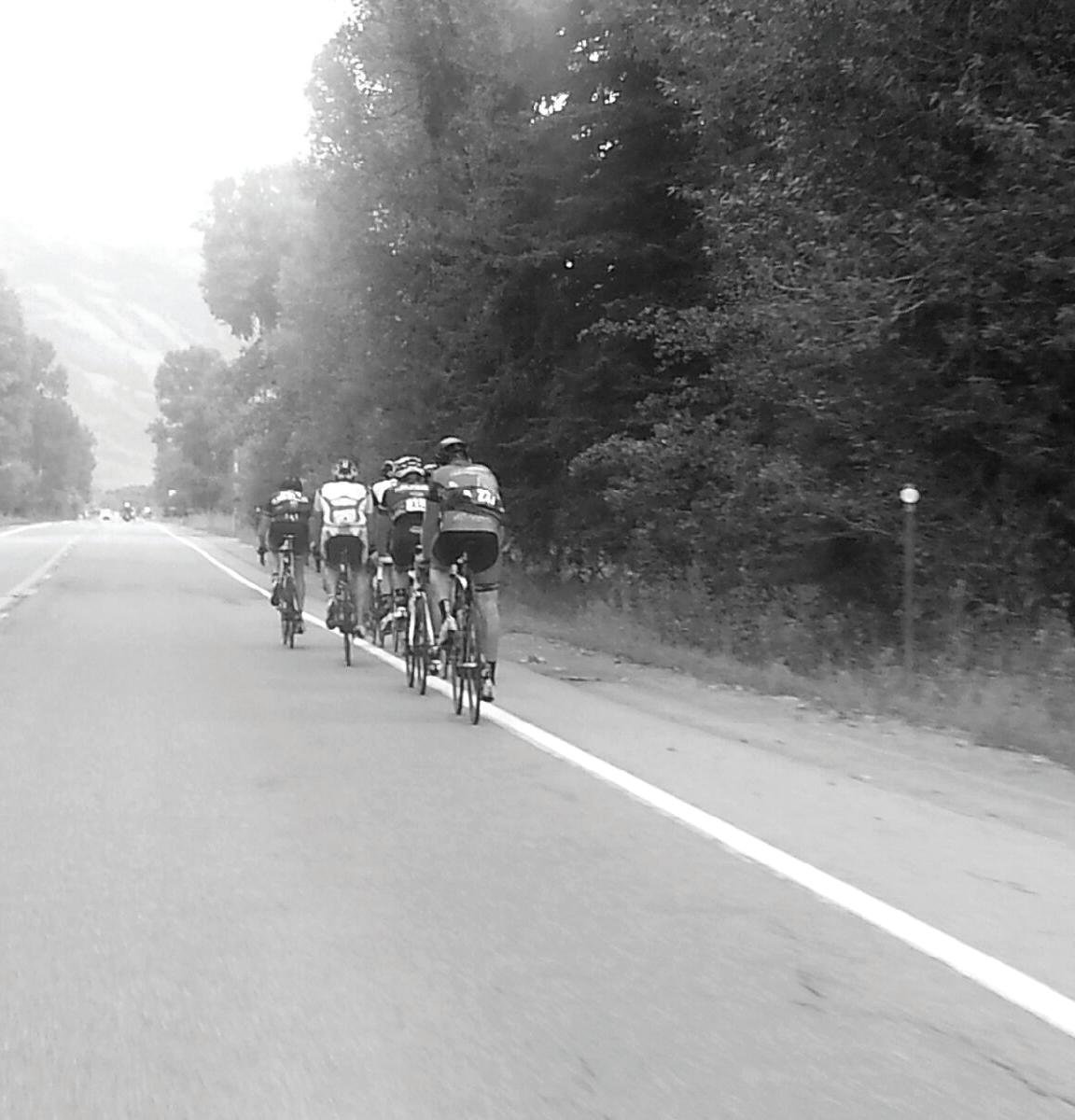Competitors in cycling race receive local, national support
LoToJa, a 206-mile road-bike race, stretches from Logan to Jackson, Wyo. More than 4,000 bikers want to be part of this extreme race yearly, but an average of 1,500 people are accepted to compete. This race attracts people nationwide, but was started by valley natives including Dave Bern, a USU alumnus and the communications director of the LoToJa Classic.
LoToJa has grown from a small group of friends biking together to an event cyclists mark on their calendars.
“I was here in 1983 at the very first LoToJa,” Bern said. “It started here at Sunrise Cyclery. We had less than ten people here at the start line and everybody finished that first LoToJa.”
Bern never expected the event to grow as much as it has.
“That first year I put the event on, and I asked everybody is this something they would love to do and come back and do again and again,” he said. “They all said ‘Absolutely, this has got to be about the coolest thing that I have ever done.’ Well, here we are today. We have nearly 4,000 plus people who register for this event every year. We can only take a little more than 1,500.”
Members of the Logan Race Club are often annual cyclers in LoToJa. Kirk Eck is one of these members, and this year marked his eighteenth time competing. He has won five times: the first two times in the lower categories, the third and fourth times in the highest category. In 2012, Eck won in the masterclass.
“I tell people I’m stuck in a rut, and I can’t get out of it,” Eck said. “It’s fun for me to prepare for it. I enjoy riding bikes with my friends all summer, so having this kind of looming in the distance gets me out on the bike all summer long. It’s a great event. It’s fun to do the race itself, but I think just the drive to get out of bed and go for rides all summer long is another huge benefit for me doing it.”
Being an accountant helps Eck see the financial benefits LoToJa brings to the valley.
“Just all of the people brings in more money to the valley,” Eck said, “From an accountant’s perspective, I can see all of the revenue that it brings into the valley, into our restaurants, into our motels, gas stations and convenience stores. All of that benefits from the race, starting here.”
Many charities are part of LoToJa. The Huntsman Cancer Institute usually is the biggest partner and contributor to LoToJa. Members call themselves “Huntsman Hometown Heroes,” and the 2013 race was the organization’s tenth year with LoToJa.
“LoToJa has been amazing,” said Jen Murano, who oversaw the Huntsman Hometown Heroes. “Every year they raise at least $100,000 through LoToJa. We are probably crossing the $600,000 mark for funds for cancer research.”
The Huntsman Hometown Heroes are all on a team together. They get an entry ticket for the race, paying $25 dollars and promising to raise at least $1,000 for their cause.
“We do an early registration so everybody that rides with us gets an automatic entry, which is gold for LoToJa because it’s hard to get in,” Murano said, “Our top fundraiser raised over $5,000. We have some pretty incredible men and women who ride for us.”
Having a support crew is essential for a competitor, Eck said.
“Having a good support crew is a crucial part of the race,” Eck said. “My wife has done this for me for most of the years that I have done it, and so she has got it down to a science. That is key to having a good race – having a good support crew.”
Support crew members are often people who really care about the person biking. The experience isn’t always fun for the crew member, but it’s definitely rewarding, according to Mackenzie Paget, a junior studying health science.
“You sit in a car for a long time and eat lots of food,” said Paget, who was part of the support team for her father, Monte Diedrickson. “Then you’re more tired by the end of the day, so it’s great.”
Paget has supported her dad most of those years he has competed.
“I have been four out of the six years he has competed,” Paget said, “This year, he is receiving his five-year award.”

